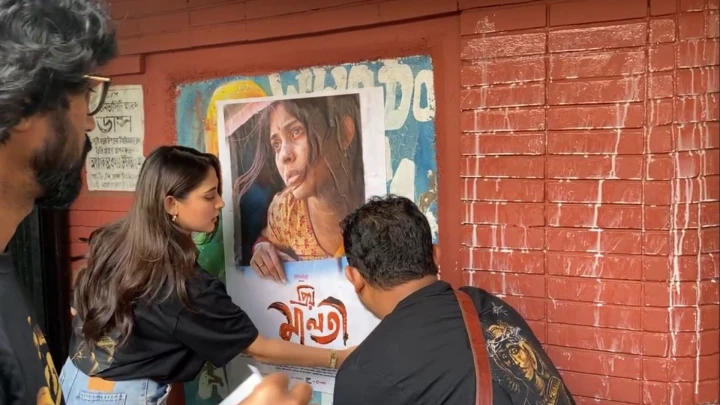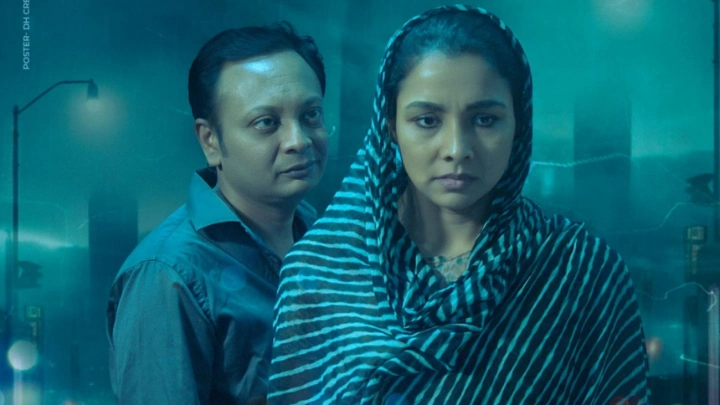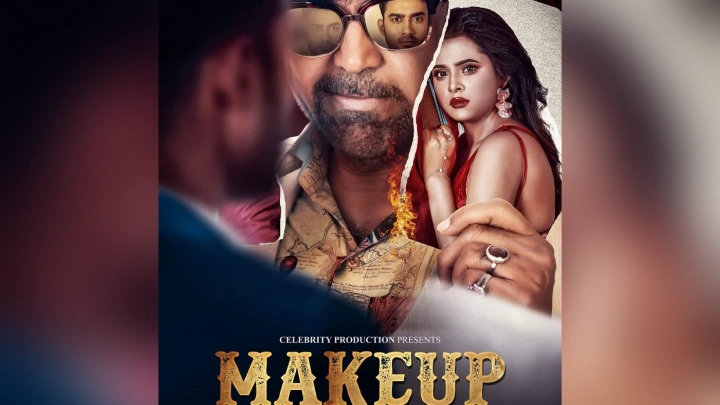While the apology acknowledges the mistake, it raises a troubling question: how could such an oversight occur with an entire PR team, media personnel, and fans present?
Mehazabien's poster fiasco: Honest mistake or clueless celebrityhood?
TBS || Shining BD
Four months have passed since the July revolution, yet anyone moving across Dhaka can still feel the echo of that time through the graffiti on its walls.
These pieces of protest art are more than mere drawings; they are raw expressions of a people united by hope, despair, and a collective demand for justice.
But for those who perhaps watched from the sidelines, getting an update from social media every now and then, the stories behind the graffiti may not hold so much significance.
In a demonstration of living such a sheltered, charmed life, Bangladeshi actress Mehazabien Chowdhury visited the Dhaka University's TSC area yesterday (18 December) as part of the promotional campaign for her upcoming film.
During the campaign, she was seen putting up posters for the film.
With smiles for cameras, she put up a poster covering the very visible graffiti dedicated to Sohagi Jahan Tonu, a rape and murder victim from 2016.
Tonu's murder and the events that followed had left the entire nation in shock as it exposed the enduring failures of our judiciary system – but this shock did not extend to everyone.
When people saw the Live video of Mehazabien's action, it sparked an instant outrage on social media.
People accused the actress of insensitivity, with some alleging it was a deliberate publicity stunt.
Some Facebook posts suggested that since many people were unaware of her movie, this might have been an attempt to generate negative publicity and spark conversation.
Rifat Rashid, coordinator of the anti-discrimination student movement, demanded an apology as well in a Facebook post.
An apology did follow.
Later that evening, Mehazabien visited TSC again and personally took down the movie poster that had been placed over the graffiti on the wall.
She also wrote an apology on her social media and said, "For the promotion of the film Priyo Maloti, our team visited TSC today. Many people joined us in supporting the campaign, but due to the overwhelming crowd and unavoidable circumstances, we had to wrap up the postering campaign quickly. Unfortunately, amidst the unintentional mismanagement, a poster was mistakenly placed over the graffiti of the late Sohagi Jahan Tonu."
While the apology acknowledges the mistake, it raises a troubling question: how could such an oversight occur with an entire PR team, media personnel, and fans present?
Once again, it should be noted how visible the graffiti was. Mehazabien could even be seen looking at the graffiti before putting up the poster.
How can so many people involved make the same ignorant mistake?
The significance of the incident might be unclear to some, but the words "rape" and "murder" were clearly visible on the graffiti.
Even aside from that, the significance of our graffitis cannot be lost on anyone who lives in the country, especially post-July.
In a country that has recently witnessed such an uprising and endured years of inhumane violence, how can one's core remain unmoved by this?
In her post, she also wrote, "We are all aware of Tonu's tragic story and the ongoing fight for justice in her case. What happened regarding the postering was a completely inadvertent mistake. We immediately removed those posters and observed a moment of silence to pay our respects"
She added, "Our film, our team, and our struggle are rooted in the fight for justice, and this comes from the depths of our hearts. We sincerely hope you will view this unintentional error with forgiveness. Thank you for all your support."
If a team is truly "rooted" in the fight for justice, how can it be so blind or act so thoughtlessly in covering up the graffiti of a rape and murder victim?
Promotional campaigns are planned events, and rushing to finish the poster campaign on public property should come with its own set of problems.
These walls of TSC represent the unfulfilled dreams, systemic failures, and the resilience of a nation's people. Covering such art with a promotional poster is not just a logistical error; it's a cultural offence.
And an apology does not erase the initial harm.
If anything this paints a deeper picture of our society where money-making pursuits once again trump people's emotions.
Shining BD
























